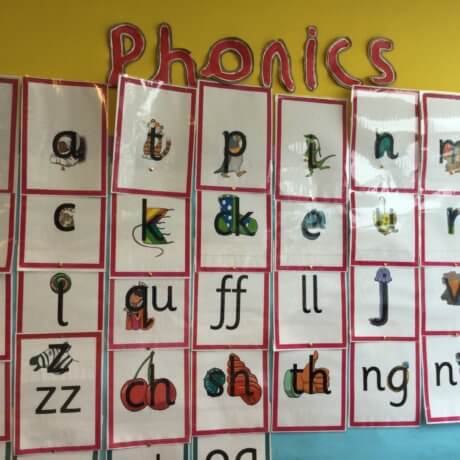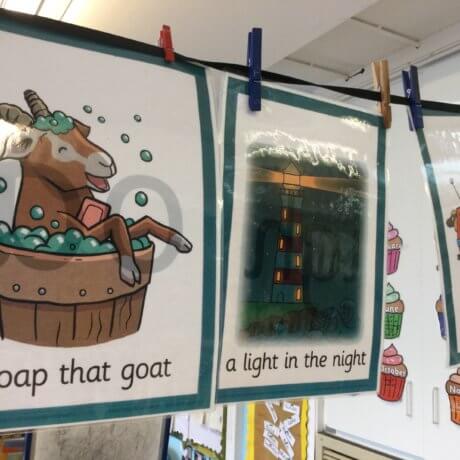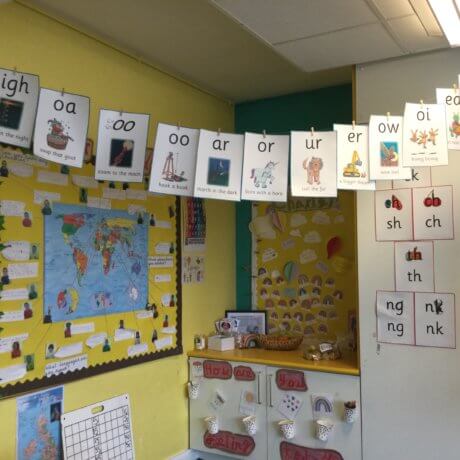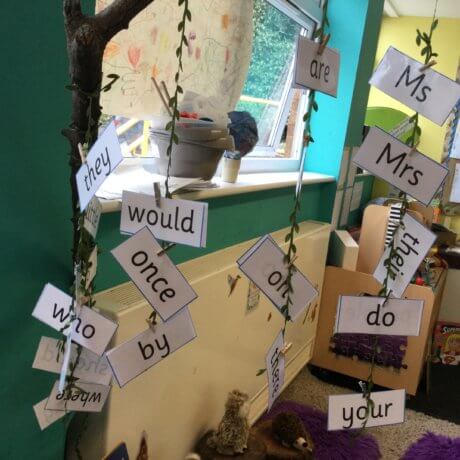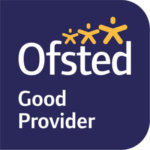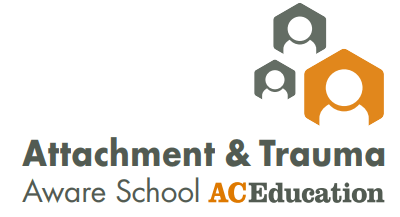PHONICS & EARLY READING AT ST CATHERINE’S
An Introduction to Phonics & Early Reading from Mrs Una Turner (English/Reading Leader)
At St. Catherine’s Catholic Primary School, we strive to ensure that all children become successful, fluent readers by the end of Key Stage One and believe this is achievable through a combination of strong, high quality, discrete systematic phonics teaching combined with a ‘Reading for Pleasure’ culture. Being able to read is the most important skill children will learn during their early schooling and has far-reaching implications for lifelong learning and well-being.
We aim to teach children to read and develop a love of books as soon as they arrive at St Catherine’s School, and books are used to teach topics and to enhance our whole curriculum. Children engage with daily story time, songs, poem and rhyme sessions. All classrooms have their own book areas, and there are reading areas available outside. Books in the classroom provision are changed each half-term to reflect the different seasons, topics taught and children’s interests. Teachers read stories to children from high quality age-appropriate texts at every available opportunity. These books are then used to enhance the learning environment and reading area.
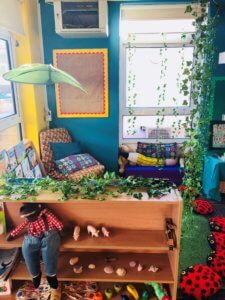
Phonics
The Rose Review of early reading confirmed that ‘high quality phonic work’ should be the prime means for teaching children how to read and spell words. Our school has chosen Little Wandle Letters and Sounds Revised as our systematic, synthetic phonics (SSP) programme to teach early reading and spelling. The Rose Review also highlighted the importance of developing from the earliest stages children’s speaking and listening skills, ensuring that beginner readers are ready to get off to a good start in phonic work. These skills are something we are passionate about developing in all children, and something we value developing in our youngest learners in our two and three year old Nurseries.
When they move into Reception Class, children begin to make connections between the sounds of our spoken words and the letters that are used to write them down. In Reception, children learn four new phonemes and graphemes a week, and then review these on a Friday. These are then displayed in the classroom for the children to refer to throughout the day. You can see an overview of the Little Wandle Letters and Sounds Programme here.
If you would like more help in supporting your child with their learning in phonics, please click here for some useful resources, including information about letter formation, tricky words, and how to support your child with blending.
We believe that it is essential that our approach to teaching phonics and reading is accessible to all learners, regardless of background. This approach is in alignment with our belief that we first ‘learn to read’ and then ‘read to learn’.
Reading at Home
Although your child will be taught to read at school, you can have a huge impact on their reading journey by continuing their practice at home.
There are two types of reading book that your child may bring home:
A reading practice book. This will be at the correct phonic stage for your child. They should be able to read this fluently and independently.
A sharing book. Your child will not be able to read this on their own. This book is for you both to read and enjoy together.
Sharing book
In order to encourage your child to become a lifelong reader, it is important that they learn to read for pleasure. The sharing book is a book they have chosen for you to enjoy together.
Please remember that you shouldn’t expect your child to read this alone. Read it to or with them. Discuss the pictures, enjoy the story, predict what might happen next, use different voices for the characters, explore the facts in a non-fiction book. The main thing is that you have fun!
Reading practice book
This book has been carefully matched to your child’s current reading level. If your child is reading it with little help, please don’t worry that it’s too easy – your child needs to develop fluency and confidence in reading.
Listen to them read the book. Remember to give them lots of praise – celebrate their success! If they can’t read a word, read it to them. After they have finished, talk about the book together.
Should you wish to discuss phonics further or need any help supporting your child with phonics, please feel free to contact Mrs Turner, who would be delighted to support you.
Please follow this link for a copy of the slides from our Little Wandle Parent Workshop

